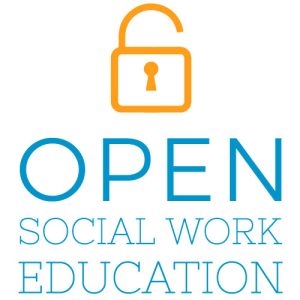4 Science and Common Sense
Learning Objectives
- Explain the limitations of common sense when it comes to achieving a detailed and accurate understanding of human behavior.
- Give several examples of common sense or folk psychology that are incorrect.
- Define skepticism and its role in scientific psychology.
Can We Rely on Common Sense?
Some people wonder whether the scientific approach to psychology is necessary. Can we not reach the same conclusions based on common sense or intuition? Certainly we all have intuitive beliefs about people’s behavior, thoughts, and feelings—and these beliefs are collectively referred to as folk psychology. Although much of our folk psychology is probably reasonably accurate, it is clear that much of it is not. For example, most people believe that anger can be relieved by “letting it out”—perhaps by punching something or screaming loudly. Scientific research, however, has shown that this approach tends to leave people feeling more angry, not less (Bushman, 2002)[1]. Likewise, most people believe that no one would confess to a crime that they had not committed unless perhaps that person was being physically tortured. But again, extensive empirical research has shown that false confessions are surprisingly common and occur for a variety of reasons (Kassin & Gudjonsson, 2004)[2].
Some Great Myths
In 50 Great Myths of Popular Psychology, psychologist Scott Lilienfeld and colleagues discuss several widely held commonsense beliefs about human behavior that scientific research has shown to be incorrect (Lilienfeld, Lynn, Ruscio, & Beyerstein, 2010)[3]. Here is a short list:
- “People use only 10% of their brain power.”
- “Most people experience a midlife crisis in their 40’s or 50’s.”
- “Students learn best when teaching styles are matched to their learning styles.”
- “Low self-esteem is a major cause of psychological problems.”
- “Psychiatric admissions and crimes increase during full moons.”
How Could We Be So Wrong?
How can so many of our intuitive beliefs about human behavior be so wrong? Notice that this is an empirical question, and it just so happens that psychologists have conducted scientific research on it and identified many contributing factors (Gilovich, 1991)[4]. One is that forming detailed and accurate beliefs requires powers of observation, memory, and analysis to an extent that we do not naturally possess. It would be nearly impossible to count the number of words spoken by the women and men we happen to encounter, estimate the number of words they spoke per day, average these numbers for both groups, and compare them—all in our heads. This is why we tend to rely on mental shortcuts (what psychologists refer to as heuristics) in forming and maintaining our beliefs. For example, if a belief is widely shared—especially if it is endorsed by “experts”—and it makes intuitive sense, we tend to assume it is true. This is compounded by the fact that we then tend to focus on cases that confirm our intuitive beliefs and not on cases that dis-confirm them. This is called confirmation bias. For example, once we begin to believe that women are more talkative than men, we tend to notice and remember talkative women and silent men but ignore or forget silent women and talkative men. We also hold incorrect beliefs in part because it would be nice if they were true. For example, many people believe that calorie-reducing diets are an effective long-term treatment for obesity, yet a thorough review of the scientific evidence has shown that they are not (Mann et al., 2007)[5]. People may continue to believe in the effectiveness of dieting in part because it gives them hope for losing weight if they are obese or makes them feel good about their own “self-control” if they are not.
Scientists—especially psychologists—understand that they are just as susceptible as anyone else to intuitive but incorrect beliefs. This is why they cultivate an attitude of skepticism. Being skeptical does not mean being cynical or distrustful, nor does it mean questioning every belief or claim one comes across (which would be impossible anyway). Instead, it means pausing to consider alternatives and to search for evidence—especially systematically collected empirical evidence—when there is enough at stake to justify doing so. For example, imagine that you read a magazine article that claims that giving children a weekly allowance is a good way to help them develop financial responsibility. This is an interesting and potentially important claim (especially if you have children of your own). Taking an attitude of skepticism, however, would mean pausing to ask whether it might be instead that receiving an allowance merely teaches children to spend money—perhaps even to be more materialistic. Taking an attitude of skepticism would also mean asking what evidence supports the original claim. Is the author a scientific researcher? Is any scientific evidence cited? If the issue was important enough, it might also mean turning to the research literature to see if anyone else had studied it.
Because there is often not enough evidence to fully evaluate a belief or claim, scientists also cultivate a tolerance for uncertainty. They accept that there are many things that they simply do not know. For example, it turns out that there is no scientific evidence that receiving an allowance causes children to be more financially responsible, nor is there any scientific evidence that it causes them to be materialistic. Although this kind of uncertainty can be problematic from a practical perspective—for example, making it difficult to decide what to do when our children ask for an allowance—it is exciting from a scientific perspective. If we do not know the answer to an interesting and empirically testable question, science, and perhaps even you as a researcher, may be able to provide the answer.
- Bushman, B. J. (2002). Does venting anger feed or extinguish the flame? Catharsis, rumination, distraction, anger, and aggressive responding. Personality and Social Psychology Bulletin, 28, 724–731. ↵
- Kassin, S. M., & Gudjonsson, G. H. (2004). The psychology of confession evidence: A review of the literature and issues. Psychological Science in the Public Interest, 5, 33–67. ↵
- Lilienfeld, S. O., Lynn, S. J., Ruscio, J., & Beyerstein, B. L. (2010). 50 great myths of popular psychology. Malden, MA: Wiley-Blackwell. ↵
- Gilovich, T. (1991). How we know what isn’t so: The fallibility of human reason in everyday life. New York, NY: Free Press. ↵
- Mann, T., Tomiyama, A. J., Westling, E., Lew, A., Samuels, B., & Chatman, J. (2007). Medicare’s search for effective obesity treatments: Diets are not the answer. American Psychologist, 62, 220–233. ↵

https://www.opensocialworkeducation.com/
Navigating the web edition
If you're looking at this in a web browser, you can navigate to each chapter by clicking the Contents button on the top left side of the screen. If you're looking at this on a mobile phone, click the Contents button at the top of the page.
Downloadable editions
If you prefer to read a downloadable copy of this textbook, please use the following links.
- PDF (small file, intended for web distribution)
- PDF (large file, intended for printing)
- MOBI (for Kindle)
- EPUB (for iBooks, nook)
You can also purchase a print copy of the textbook from PrintMe1. The author does not receive any compensation from these sales, as this is a non-commercial work.
Notice errors in the textbook? Is the language hard to understand? Could an example be better? You can use the Hypothes.is extension in Google Chrome or Firefox to provide annotations and comments. I've set up a Hypothes.is group for student feedback. Using Hypothesis, you can set up your own groups to take notes on the textbook in collaboration with other students.
Instructor resources
If you are an instructor adopting this textbook, please help us understand a little more about your class by filling out this form. We value your feedback on the textbook. Please use the Hypothes.is annotation group for professors to provide comments that will be addressed in the next edition of the textbook, which will begin work in Summer 2020.
I've shared the following resources I've created. Direct links are below. If you would like to share your resources, please upload them to our OER Commons group. If you need hosting to make your resources publicly shareable on the web, I suggest using our Open Science Framework repository. You can also send them to me at profmattdecarlo@gmail.com and I will upload them for you. Please only share resources for which you own the copyright or which are openly licensed.
- PowerPoint slideshows
- A set of assignments that scaffold an individual research proposal as well as exemplars created by students for how to complete these assignments
- Quizzes--please email profmattdecarlo@gmail.com with documentation that you are a research methods instructor
You can easily customize this textbook for your classroom using Pressbooks. I would like people to adapt their own versions of this book.
- Download the XML file for this textbook.
- Create a Pressbooks account.
- Go to Tools/Import.
- Open this textbook's XML file using the prompt.
- Your project will now be a clone of my textbook. Take out whatever you want, add stuff, revise wording...do whatever you want with it.
- Make sure to abide by the Creative Commons license and provide proper attribution for all adapted material.
- To publish your adapted textbook publicly, you will have to pay $99 to Pressbooks. It's the same fee I paid to publish mine.
- Feel free to consult the BCCampus self-publishing guide. You can also ask me for help. I'm genuinely happy to help!
If you make changes to the ancillary resources or textbook you feel the community would benefit from or develop new resources, please consider sharing them with the author for inclusion in future editions of this textbook and on OER Commons or Merlot. Please provide attribution following the best practices in the BCCampus guide.
Publisher information
For more information on open educational resources, open textbooks, and open pedagogy in social work, visit Open Social Work Education. Our goal is to create open resources for each course in social work!
Molly A. Metz
 Dr. Molly Metz is an Associate Professor, Teaching Stream, in the Department of Psychology at the Unversity of Toronto.
Dr. Molly Metz is an Associate Professor, Teaching Stream, in the Department of Psychology at the Unversity of Toronto.
You can find her online at @metzpsych or mollyametz.com
Rajiv S. Jhangiani

Dr. Rajiv Jhangiani is the Associate Vice Provost, Open Education at Kwantlen Polytechnic University in British Columbia. He is an internationally known advocate for open education whose research and practice focuses on open educational resources, student-centered pedagogies, and the scholarship of teaching and learning. Rajiv is a co-founder of the Open Pedagogy Notebook, an Ambassador for the Center for Open Science, and serves on the BC Open Education Advisory Committee. He formerly served as an Open Education Advisor and Senior Open Education Research & Advocacy Fellow with BCcampus, an OER Research Fellow with the Open Education Group, a Faculty Workshop Facilitator with the Open Textbook Network, and a Faculty Fellow with the BC Open Textbook Project. A co-author of three open textbooks in Psychology, his most recent book is Open: The Philosophy and Practices that are Revolutionizing Education and Science (2017). You can find him online at @thatpsychprof or thatpsychprof.com
Carrie Cuttler

Dr. Carrie Cuttler received her Ph.D. in Psychology from the University of British Columbia. She has been teaching research methods and statistics for over a decade. She is currently an Assistant Professor in the Department of Psychology at Washington State University, where she primarily studies the acute and chronic effects of cannabis on cognition, mental health, and physical health. Dr. Cuttler was also an OER Research Fellow with the Center for Open Education and she conducts research on open educational resources. She has over 50 publications including the following two published books: A Student Guide for SPSS (1st and 2nd edition) and Research Methods in Psychology: Student Lab Guide. Finally, she edited another OER entitled Essentials of Abnormal Psychology. In her spare time, she likes to travel, hike, bike, run, and watch movies with her husband and son. You can find her online at @carriecuttler or carriecuttler.com
Dana C. Leighton

Dr. Dana C. Leighton is Assistant Professor of Psychology in the College of Arts, Science, and Education at Texas A&M University—Texarkana. He earned his Ph.D. from the University of Arkansas, and has 15 years experience teaching across the psychology curriculum at community colleges, liberal arts colleges, and research universities. Dr. Leighton's social psychology research lab studies intergroup relations, and routinely includes undergraduate students as researchers. He is also Chair of the university’s Institutional Review Board. Recently he has been researching and writing about the use of open science research practices by undergraduate researchers to increase diversity, justice, and sustainability in psychological science. He has published on his teaching methods in eBooks from the Society for the Teaching of Psychology, presented his methods at regional and national conferences, and received grants to develop new teaching methods. His teaching interests are in undergraduate research, writing skills, and online student engagement. For more about Dr. Leighton see http://www.danaleighton.net and http://danaleighton.edublogs.org

